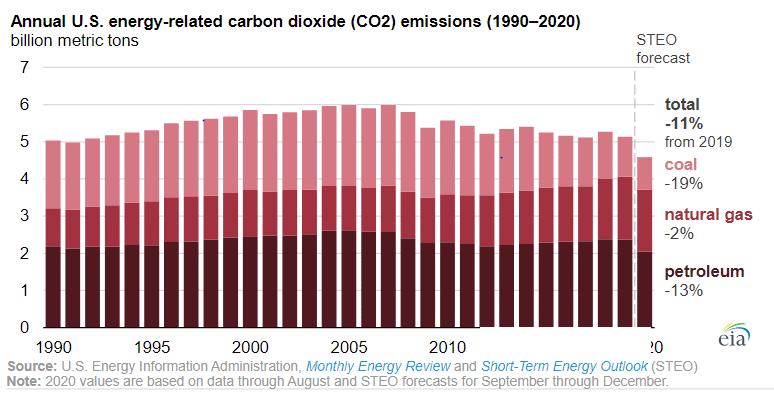Carbon dioxide (CO2) emissions from the U.S. energy sector could be 11% lower in 2019 than in 2019, according to the Energy Information Administration (EIA) press release. CO2 emissions from coal are projected to fall by 19%, by 13% for petroleum, and by 2% for natural gas.

- This year’s declines in energy-related CO2 emissions are attributable to the economic and behavioral effects of COVID-19 pandemic which affected energy consumption.
- In April, monthly U.S. energy consumption fell to a 30-year low and emissions declined to a record low due to measures instituted to slow the spread of COVID-19
- Petroleum, which accounted for about 45% of U.S. energy-related CO2 emissions in 2020, had emissions from the transportation sector fall to 102 million metric tons in April 2020, the lowest monthly level since February 1983.
- Natural gas accounted for about 36% of U.S. energy-related CO2 emissions in 2020 and its use increased despite a slight fall in electricity consumption.
- Coal CO2 emissions could reach the lowest annual level of 4,597 million metric tons, or 19% of the total, this year
- In the electric power sector, where most coal is consumed, coal has lost market share to natural gas and renewables since peaking in 2007.



